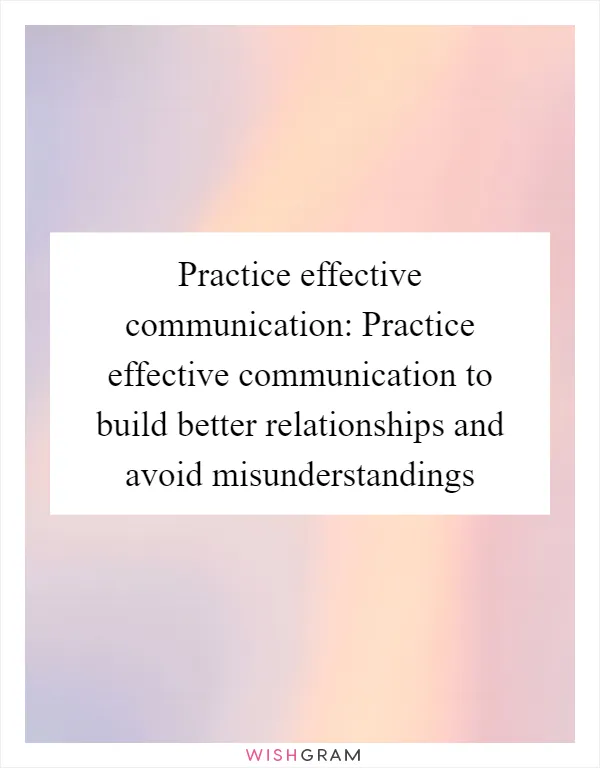Practice effective communication: Practice effective communication to build better relationships and avoid misunderstandings
Effective communication is crucial for building better relationships and avoiding misunderstandings. When we communicate effectively, we are able to express our thoughts and feelings clearly, while also actively listening to others. This helps us understand each other better and fosters stronger connections.
One key aspect of effective communication is being a good listener. When someone is speaking, it's important to give them our full attention and avoid interrupting. By actively listening, we can understand their perspective and respond appropriately. This shows respect and empathy, which are essential for building positive relationships.
Another important element of effective communication is using clear and concise language. Avoiding jargon or complex terms can prevent misunderstandings and ensure that our message is easily understood. It's also helpful to use examples or visual aids when necessary to enhance understanding.
Non-verbal communication is also significant in effective communication. Our body language, facial expressions, and tone of voice can convey messages that words alone may not capture. Being aware of our non-verbal cues and paying attention to others' can help us better understand each other's emotions and intentions.
In addition, it's important to be mindful of cultural differences when communicating. Different cultures may have varying communication styles and norms. Being respectful and open-minded towards these differences can help avoid misunderstandings and build stronger relationships.
When conflicts or misunderstandings arise, it's crucial to address them promptly and directly. Avoiding or ignoring issues can lead to further complications. Instead, expressing our concerns calmly and respectfully can help resolve conflicts and strengthen relationships.
Furthermore, practicing empathy is essential for effective communication. Putting ourselves in others' shoes and trying to understand their perspective can foster understanding and compassion. This can lead to more meaningful and harmonious relationships.
Lastly, it's important to be aware of our own emotions and how they may impact our communication. When we are feeling stressed, angry, or upset, it can be challenging to communicate effectively. Taking a moment to calm ourselves before engaging in a conversation can help us express our thoughts and feelings more clearly.
